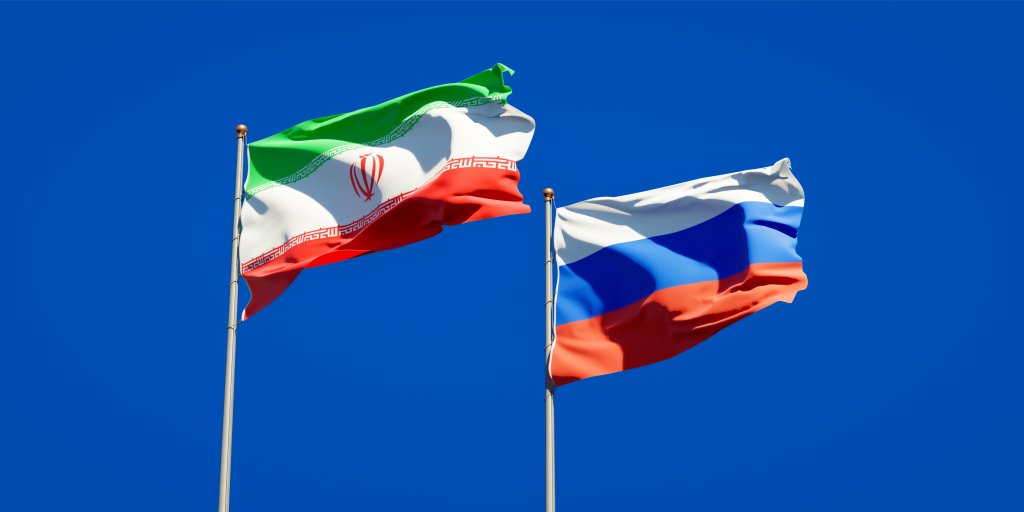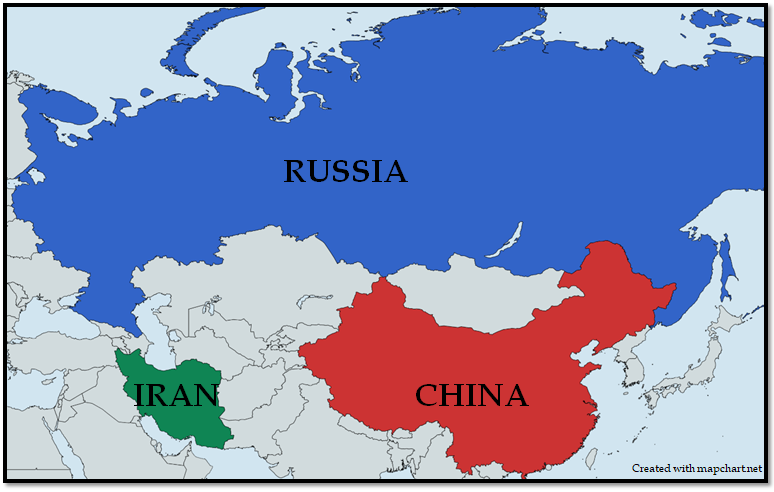Relation between Irand and Russia officially started in 1521, when the Grand Dutch in Moscow and Safavids in Persian(Iran), were in power. Iran and Russia have long been complicatedly multi-faceted; often wavering between collaboration and rivalry. The two nations have a long history of geographic, economic, and socio-political interaction. Mutual relations have often been turbulent, and dormant at other times.
After the fall of the Soviet Union, the two nations have generally enjoyed very close cordial relations. Iran and Russia are strategic allies and formed an axis in the Caucasus alongside Armenia. Iran and Russia are also military allies in the conflicts in Syria and Iraq and partners in Afghanistan and post-Soviet Central Asia. The Russian Federation is also the chief supplier of arms and weaponry to Iran. Iran is also helping Russia by supplying weapons to Russia in the Russia-Ukraine conflict. Due to Western economic sanctions on Iran, Russia has become a key trading partner, especially with the former’s excess oil reserves. Currently, Russia and Iran share a close economic and military alliance, and both countries are subject to heavy sanctions by Western nations.

In 2007, Russia invited Iran to join the Collective Security Treaty Organization (CSTO), the Russia-based international treaty organization that parallels NATO. After Vladimir Putin was elected as President of the Russian Federation he pursued close friendship with Iran and Syria. And increase military cooperation with both nations. In 2015 Putin ordered Military intervention to support President Assad’s regime in Syria and started bombing against the opponents of the Assad government.
Historically, Iran and Russia have had periods of both cooperation and competition. In recent years, they have found common ground on several fronts:
- Geopolitical Alignment: Both Iran and Russia have shared interests in countering U.S. influence in the Middle East and Central Asia. They have cooperated on issues such as the Syrian Civil War, where both countries support the Assad regime, and have worked together within the framework of the Astana process alongside Turkey to try to resolve the conflict.
- Economic Collaboration: Despite some competition in energy markets, particularly regarding natural gas exports to Europe, Iran and Russia have pursued economic cooperation in areas such as energy, transportation, and infrastructure development. For example, Russia has been involved in Iran’s nuclear energy program and has participated in projects like the construction of the Bushehr Nuclear Power Plant.
- Military and Defense Cooperation: Iran and Russia have deepened their military ties, including arms sales and joint military exercises. Russia has supplied Iran with weapons systems, including advanced air defense systems such as the S-300 missile system.
- Diplomatic Relations: The two countries have maintained diplomatic relations and have often coordinated their positions on international issues, including their opposition to Western interventions in the Middle East and their support for multilateral approaches to conflict resolution.

However, there are also areas where their interests diverge:
- Regional Rivalries: Despite their cooperation in certain areas, Iran and Russia have competing interests in the region, particularly in Central Asia and the Caucasus. They have different approaches to regional powers such as Turkey and Israel, which can sometimes lead to tensions.
- Energy Competition: While both countries are major energy producers, they also compete for market share, particularly in Europe. Iran’s re-entry into the global energy market following the lifting of sanctions has the potential to increase competition with Russia in key markets.
Overall, Iran and Russia have developed a pragmatic relationship based on shared interests, but their partnership is also influenced by regional dynamics and global geopolitics.
